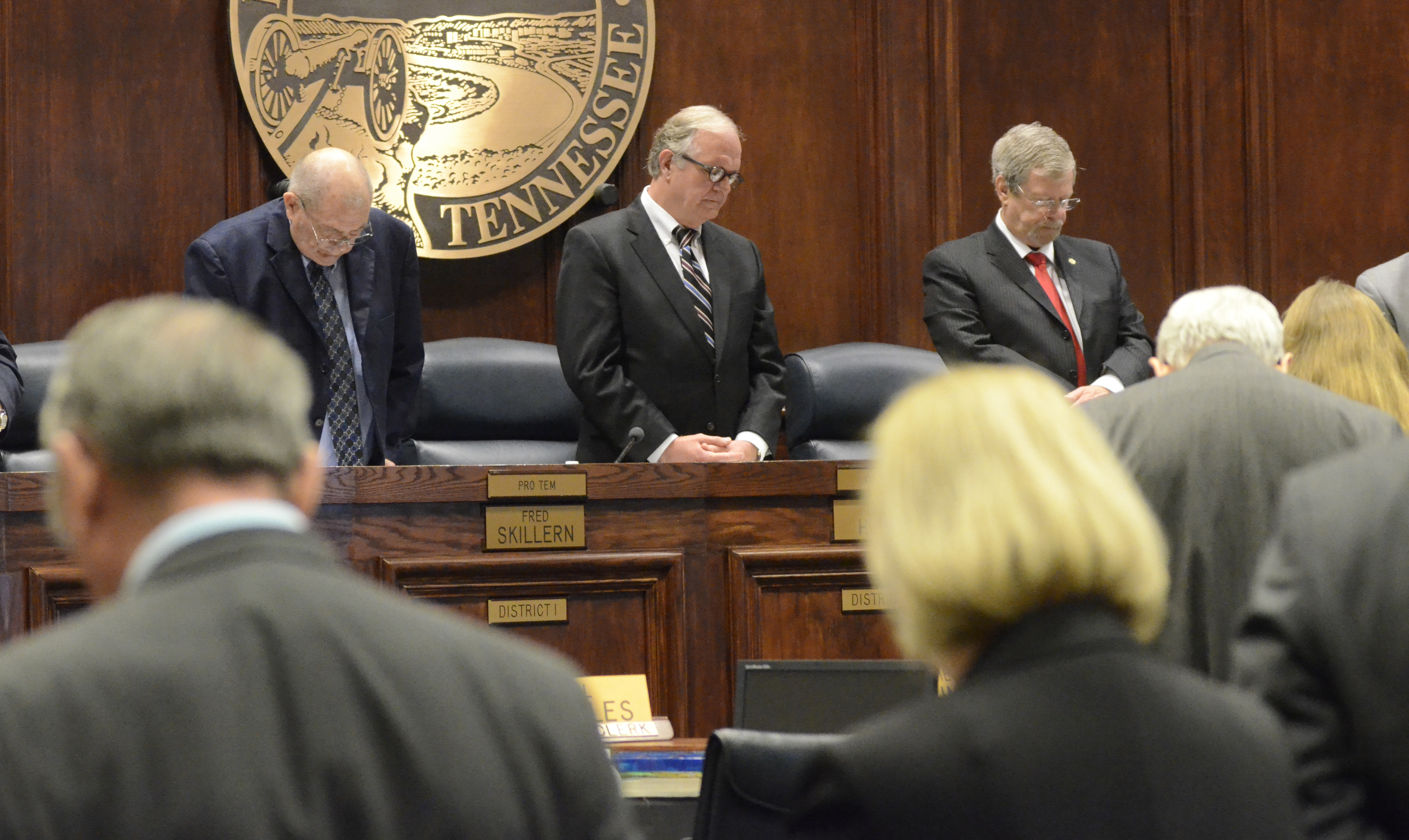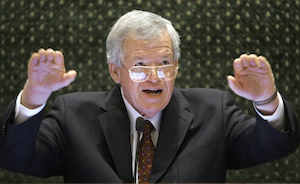A federal appeals court agrees that prayers before Hamilton County Commission meetings can continue, but a lawyer for two residents suing the county over prayers says the nation's highest court will ultimately determine the outcome.
On Friday, the U.S. 6th Circuit Court of Appeals in Cincinnati, Ohio, upheld U.S. District Court Judge Harry S. Mattice's year-old decision not to bar prayers at meetings before the case is concluded.
Residents Brandon Jones and Thomas Coleman originally requested the injunction on public prayers when they filed a lawsuit against the county in June 2012. They say the county's prayer policy runs afoul of the First Amendment's Establishment Clause -- which bars government from respecting one religion over others.
Robin Flores, the attorney representing Jones and Coleman, said Friday the appellate court's ruling doesn't mean prayers at meeting are constitutional. The ruling simply states the prayers cannot be halted before a final decision from the U.S. Supreme Court.
"That 6th Circuit opinion does not equate to the 6th Circuit saying 'you guys in Hamilton County are OK doing what you are doing,'" Flores said. "This is only an opinion on the narrow issue of a preliminary injunction."
At the same time, the U.S. Supreme Court has taken up the case of Town of Greece v. Galloway, a New York lawsuit that mirrors the local prayer lawsuit. All attorneys involved in the Hamilton County case say the high court's decision on the New York case will settle legislative prayer.
Flores is awaiting permission from the high court to join the Galloway case as a "friend of the court."
Meanwhile, the appellate court Friday upheld Mattice's injunction ruling, but it also said enough time has passed since the county created an invocation policy in July 2012 to discern whether the county's policy passes constitutional muster.
Jones and Coleman's suit claims while the policy might seem religion neutral, in practice the majority of the prayers offered are Judeo-Christian. Also, Coleman asked the county in November 2012 to offer the invocation as an atheist -- intending to hold a moment of silence -- but he never received a response from the county.
County Commission Legislative Administrator Chris Hixon said in March the county only allows invocations from clergy who qualify for federal tax exemptions as a religious institution.
No response is a denial, Flores said.
"We've had enough time now that we can show that the county's prayer policy is basically a sham, and that's what we say in briefs," Flores said.
Basically, the case will return to Mattice's court and continue, according to attorney Steve Duggins, who is representing the county.
"My guess is that the local district judge here will set a scheduling conference in the relatively near future. ... We'll go through the normal process just like any other lawsuit," Duggins said.
Duggins said the county has no intention of joining the Galloway case, but he will be paying attention to it.
"When that decision comes down, we will have a new set of rules or guidelines," he said. "We will presumably get a great deal more clarity on the guidelines when that case is decided."
So far, federal appellate courts in New York, Virginia, Illinois and Colorado have ruled against allowing prayer at government meetings. But courts in California and Georgia have upheld it. Part of the Supreme Court's duty is to provide uniformity of law, Flores said.
The high court has not yet ruled on the Galloway case, but Duggins said he suspects it will before the Hamilton County case goes to trial.
Jones said Friday he has high hopes about joining the Galloway case.
"I feel good about it. I feel good about the Amicus brief ... when they win, we win," Jones said.
A part-time University of Tennessee at Chattanooga student, Jones said he has learned much from filing the lawsuit.
"If you want to make change, in a big way, some may say drastic way, you really have to do things like this," Jones.
When he and Coleman first went to the county commission to petition them to substitute prayers with a moment of silence, Jones said their pleas fell on deaf ears.
"They literally weren't listening to us. That's the tragedy of the whole thing. We might not have sued if they had even responded to us," Jones said. "If you want your government to listen to you, you have to sue it."
Contact staff writer Louie Brogdon at lbrogdon@timesfreepress.com or 423-757-6481. Follow him on Twitter at @glbrogdoniv.


